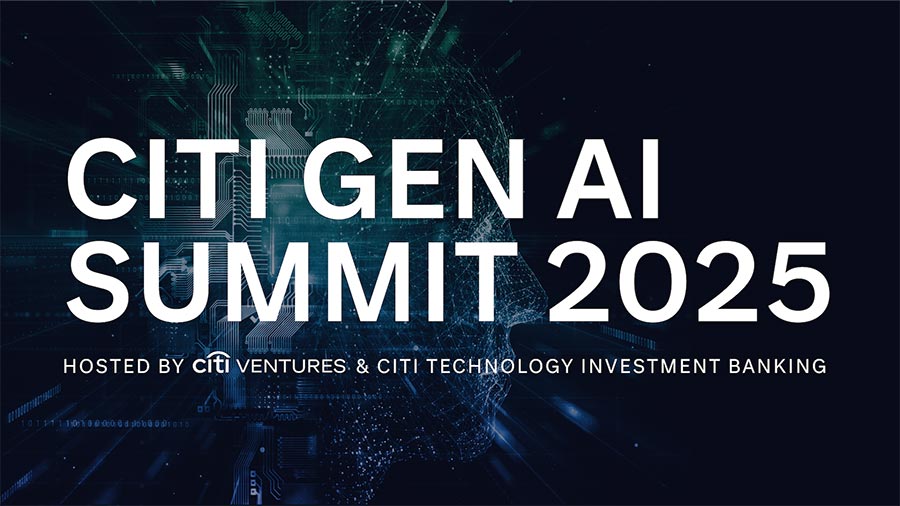Citi Gen AI Summit 2025 Takeaways: Agentic AI use cases and best practices

I had the pleasure of moderating a panel looking at agentic AI and diving into specific examples of where it can transform operations and create efficiencies. Joining me on my panel were Patrick Vergara, COO, Norm Ai; Dilshoda Yergasheva, Global Head of Financial Services, Writer; Vineet Abraham, Chief Development Officer, Eightfold AI; and DK Sharma, President and COO, Kore.ai.
Agentic AI is redefining work by automating routine tasks and enhancing decision-making. But successfully integrating agentic AI into existing enterprise processes requires careful unlocking of domain expertise, high-quality governance models, and layers of collaboration to realize its full potential.
Read on for some of my key takeaways from our discussion.
Citi Stylus helped summarize the following discussion highlights.
Managing agents like humans
Agents are already recognized as decision makers within many organizations, and as such should be managed like their human counterparts. Successful agents operating within prescribed guardrails can be given more independence, while those agents that go “out of bounds” or need more training should be dealt with accordingly — just as a manager would treat an employee who needs a more hands-on approach.
Panelists noted that humans are getting proficient at managing multiple agents and are, in some cases, already “working” for agents. That does not mean an agent orders people around but instead means that humans’ main priority is to optimize the work of agents. In short, agents “tell” human managers what they need to succeed, and the humans then work to coordinate those efforts. Humans become agent enablers and facilitators, interfacing between agents and clients.
Defining and differentiating agentic AI
The panel then talked about how agentic AI goes beyond simple automation by incorporating reasoning capabilities and contextual understanding. While traditional software relies on pre-defined rules and rigid programming, agentic AI can analyze complex scenarios, adapt to changing conditions, and make informed decisions based on available data and goals.
This allows organizations to automate tasks that previously required human intervention, freeing up employees to focus on higher-value, more strategic activities. Enterprises have a choice of what types of agentic AI they want to deploy, from basic text generation to fully autonomous operation.
LLMs and domain expertise
Companies have a lot to gain from combining Large Language Models (LLMs) with enterprise domain expertise. While generic LLMs offer powerful reasoning and planning capabilities, they often lack the specific corporate knowledge needed to effectively address complex organizational or industry-specific problems.
By integrating LLMs with domain-specific data and expertise, organizations can create AI agents that possess both broad skills and deep contextual understanding. This ensures that the AI agents are not only capable of processing vast amounts of information but also applying that knowledge for specific tasks and in decision-making processes.
Agentic AI use cases vary by sector
Panelists highlighted a variety of practical use cases that showcased the transformative potential of agentic AI. In finance, AI agents assist wealth advisors by analyzing market data and providing personalized recommendations to clients. In the legal and compliance fields, agents review documents and ensure adherence to regulatory requirements. In HR, they streamline the hiring process by conducting unbiased interviews and identifying qualified candidates.
The use cases illustrated how agentic AI can enhance efficiency, reduce costs, and improve outcomes across diverse business functions.
Be strategic and responsible with agentic AI
Companies need to be thoughtful about how they deploy AI agents and plan for how they will integrate the technology into existing systems. In order to get the most out of agents, organizations may have to rethink their processes and infrastructure to optimize collaboration between humans and AI agents.
At the heart of this effort are robust governance frameworks, which ensure responsible and ethical use of AI, as well as promote transparency and accountability. Through thoughtful and collaborative approaches, organizations can unlock the full potential of agentic AI and create a future where humans and machines work together to drive innovation and achieve greater success.
Are you a founder building enterprise-grade Gen AI solutions? I’d love talk! Reach out to me at jelena.zec@citi.com.
